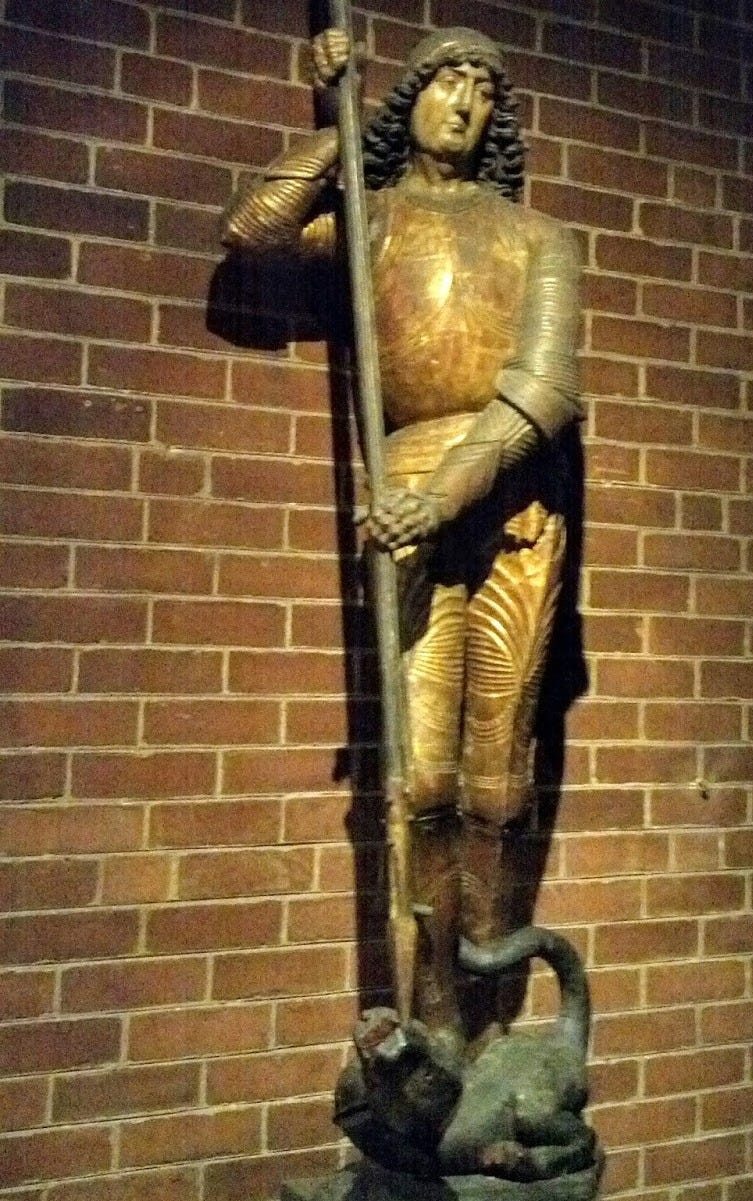The Prayers of That Great Cloud of Witnesses
St. George and the Dragon: A Compendium Entry
But even if you should suffer for what is right, you are blessed. “Do not fear their threats; do not be frightened.” But in your hearts revere Christ as Lord. Always be prepared to give an answer to everyone who asks you to give the reason for the hope that you have. But do this with gentleness and respect, keeping a clear conscience, so that those who speak maliciously against your good behavior in Christ may be ashamed of their slander.
-1 Peter 3:14-16
In the 1960s, before the Aswan Dam was flooded, a Coptic manuscript was discovered during excavations in Qasr Ibrim in Nubia. Under a column in the ruins of the cathedral of Qasr Ibrim, a manuscript written between 350 AD and 500 AD, describes the oldest tradition of the legend of St George.

According to this manuscript, St George’s father, Gerontius, was from Cappadocia (central Turkey today) and was in the service of the Roman Empire in Nobatia (a kingdom now located in both Northern Sudan and Southern Egypt). His wife, Polychronia, was a Christian. George was born between 270 and 275. His mother raised George as a Christian and had him baptised in secret, as Gerontius, who was not a Christian, disapproved.
Beyond this manuscript, the story of St. George has been passed on for generations. Tradition tells us that he served in the Roman army but refused to renounce his faith during Emperor Diocletian’s persecution of Christians. He was tortured and eventually beheaded in 303 AD for those beliefs.
Almighty God, who gave to your servant George boldness to Confess the Name of our Savior Jesus Christ before the rulers of this world, and courage to die for this faith: Grant that we may always be ready to give a reason for the hope that is in us, and to suffer gladly for the sake of our Lord Jesus Christ; who lives and reigns with you and the Holy Spirit, one God, for ever and ever.
Christian persecution has surfaced in the news headlines lately. So, it is a good time to reflect on a key figure in the history of Christian martyrdom. St. George is not known only for his death in the 3rd century. His story continued to be told to strengthen and encourage Christians who were enduring persecution for their faith. His story was so deeply appropriated by Europeans in the 12th century that George was transformed into a knight who fought and killed a dragon, the ultimate embodiment of good over evil in that day.
Several prayers have been passed on related to St. George, including the one above. Let’s pray this prayer for those who are suffering in Nigeria, as well as those closer to us who need courage and hope as they face their own suffering.


Amen